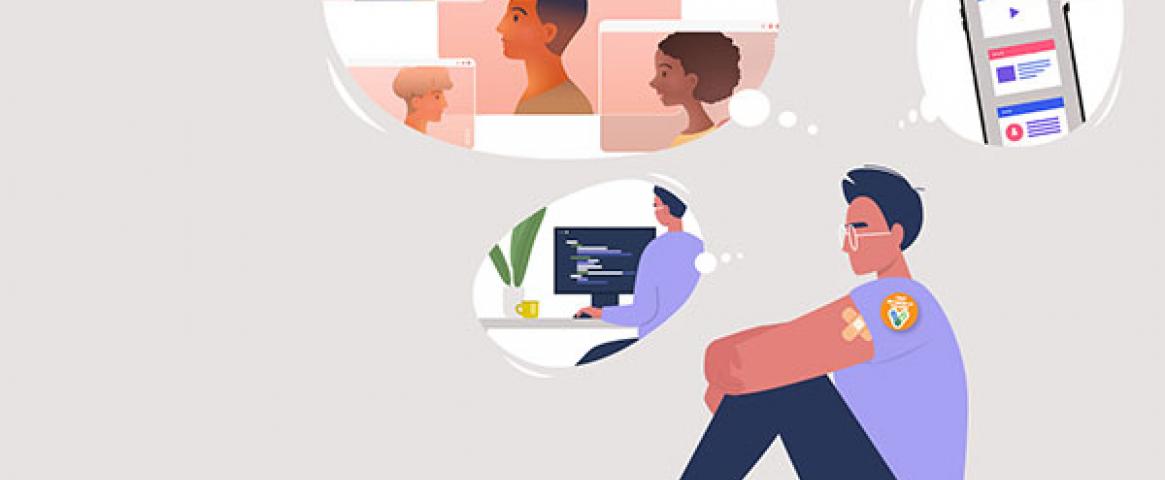By Bella Czajkowski. Mentored and edited by Sarah Perdue.
Amid widespread promotion of vaccination against COVID-19, researchers have found a way to draw on the science of inoculation to combat misinformation.
The technique, known as inoculation theory in communication, works similarly to inoculation through a vaccine: users are exposed to misinformation techniques so that they are less susceptible to such messaging when they encounter it later. In a new study, researchers show that inoculation shows promise in preparing people to recognize and reject misinformation, which has proved prevalent on social media.
“Inoculation takes the medical metaphor that we’re all now familiar with from our COVID-19 vaccines and applies it to the science of propaganda,” said Beth Goldberg, research program manager at Google’s Jigsaw Unit.
The study was conducted in part by Google’s Jigsaw Unit — an initiative offering technological solutions to topics like disinformation and censorship in the digital landscape — in collaboration with researchers from Cambridge University and the University of Bristol. Goldberg presented the study’s findings at the AAAS Annual Meeting, held virtually Feb 17-20.
To study the effect of inoculation on misinformation processing, researchers showed an experimental group a series of 90-second videos about five types of misinformation techniques: fearmongering, scapegoating, incoherence, ad hominem attacks and false dichotomies. A second group of people did not view any videos.
All participants were then shown a series of 12 tweets. Some of the tweets contained one of the five misinformation techniques, while others did not. Tweets that did not use a misinformation technique represented “neutral” posts.
Participants were asked to report, on a scale from one to seven, whether the tweet contained one of the five misinformation techniques, whether they found the post trustworthy and how likely they were to share it with their social networks.
The study found that participants who had been inoculated by watching the 90-second videos before the misinformation exposure were better able to discern misinformation techniques, less likely to rate posts containing a misinformation technique as trustworthy and less likely to share those posts with their social networks, compared to individuals who did not receive the inoculation.
And, unlike previous misinformation interventions that have proven inefficient across political ideologies, this study found that inoculation proved effective against misinformation across demographics, political beliefs and analytical abilities.
“Political ideology, in particular, has been sort of stymying the field and often is where significance rates drop off for certain interventions,” Goldberg said. “We were excited to see that there was significance for both the right and left of the U.S. political spectrum.”
The study also found that inoculation was effective against misinformation about a range of topics, from politically charged subjects like climate change to apolitical subjects like Disneyland.
As a result of these findings, Goldberg and her team began work implementing the 90-second inoculating videos onto social media platforms as a means of creating resistance to misinformation among users.
“This is an exciting finding to us. That simple, 90-second video — something that’s bite-sized and shareable on social media — can improve resilience to misinformation,” Goldberg said. “This suggests that we should be [disseminating these videos] on social media.”
Bella Czajkowski is a fourth-year journalism major with a minor in global public health at Ohio State University. She is the Editor-in-Chief of Ohio State’s independent student newspaper, The Lantern. Email her at bellaczajkowski@gmail.com or view her portfolio at www.BellaCzajkowski.com.
Image: People are faced with misinformation online every day. A new study suggests they can be equipped to combat such misinformation. Credit: CDC


